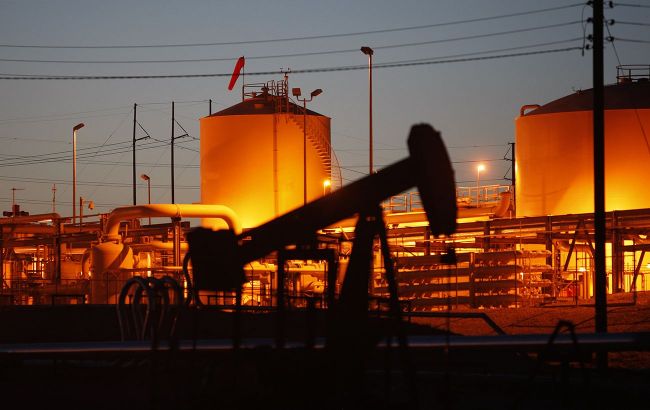Oil prices rise amid fears of escalating conflict in Middle East
 Illustrative photo (Getty Images)
Illustrative photo (Getty Images)
Oil prices rose on July 29, rebounding from last week's decline amidst concerns of escalating conflict in the Middle East following a rocket attack on the Golan Heights, which Israel and the US have attributed to the Lebanese armed group Hezbollah, according to Reuters.
Brent crude oil futures increased by 0.5% to $81.53 per barrel. American crude oil futures, West Texas Intermediate (WTI), rose by 34 cents, or 0.4%, to $77.50 per barrel.
Last week, Brent oil dropped 1.8%, and WTI fell 3.7% due to decreased demand in China and hopes for a ceasefire agreement in the Gaza Strip.
On Sunday, Israel's security cabinet authorized Prime Minister Benjamin Netanyahu's government to decide on the "manner and timing" of a response to the Saturday rocket strike on the Golan Heights, which resulted in the deaths of 12 teenagers.
Hezbollah, backed by Iran, denies responsibility for the attack, the deadliest in Israel or on Israeli-annexed territory since a Hamas assault on October 7 triggered the Gaza war. This conflict has expanded across multiple fronts and risks escalating into a broader regional war.
Israel has vowed to retaliate against Hezbollah in Lebanon, and on Sunday, Israeli aircraft struck targets in southern Lebanon.
"Worries over escalating tensions in the Middle East prompted fresh buying, but gains were limited by lingering concerns of weakening demand in China," said Fujitomi Securities analyst Toshitaka Tazawa.
Low demand in China
Regarding demand, data published earlier this month showing that China's overall fuel oil imports dropped by 11% in the first half of 2024 raised concerns about broader demand prospects in the world's largest crude importer.
"Demand concerns remain a key factor that presses on crude oil prices. The economic growth slowed in China in the second quarter, while domestic consumer demand was sluggish," said independent market analyst Tina Teng.
She added that the US Federal Reserve's decision on interest rates and China's manufacturing activity index are the next key events for markets trying to gauge the oil market's trajectory.
Markets are also closely monitoring Venezuela after the country's electoral body announced that President Nicolas Maduro won with 51% of the vote, despite numerous exit polls indicating an opposition victory.
US Secretary of State Antony Blinken said that the US is seriously concerned that the results do not reflect the will of the people. Previously, the US had said it would "calibrate" its sanctions policy on Venezuela depending on how significant elections in the OPEC country unfolded.

